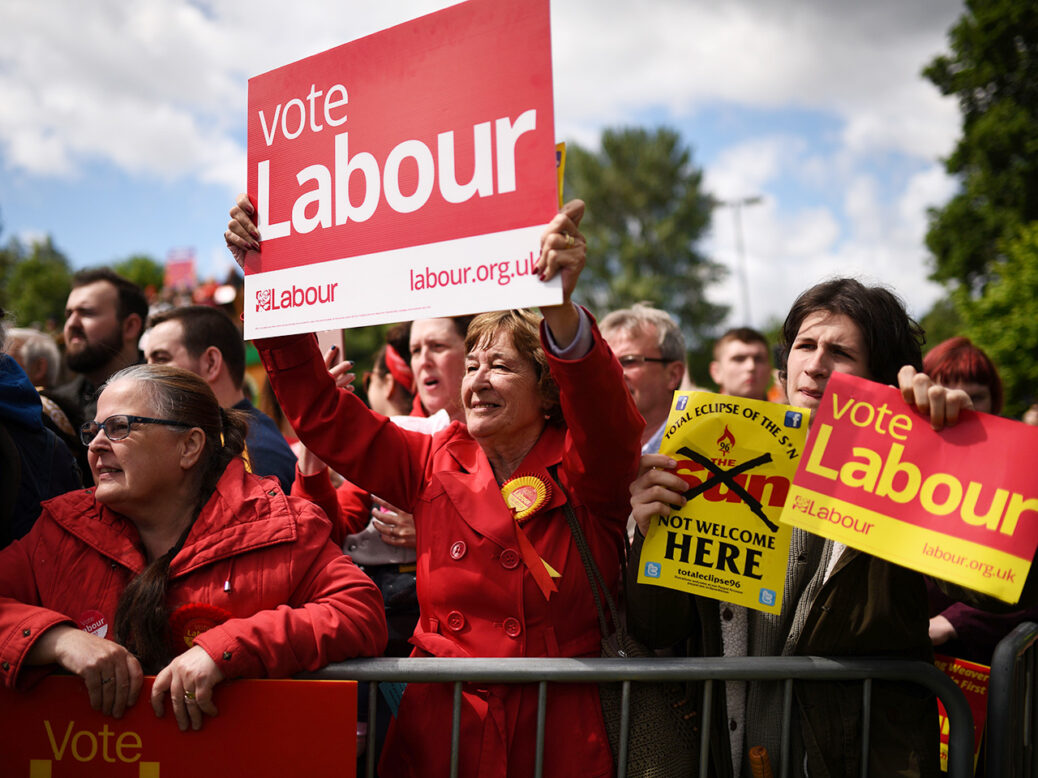
The policies likely to feature in Labour’s next manifesto have the support of the public, according to YouGov polling shared exclusively with the New Statesman. More people were in favour of all the policies that were researched than were opposed.
Nearly half of voters (48 per cent) support scrapping the non-domiciled tax status, which allows holders not to pay tax in the UK on foreign income, with only 10 per cent opposed. Labour says the policy, which the Institute for Fiscal Studies estimates would raise £3bn, would fund a recruitment drive in the NHS. However, a large proportion of people (42 per cent) said they did not know about the party’s stance, perhaps suggesting that few people are familiar with the tax itself.
There is also broad support for plans to create a publicly owned renewable energy company – like Labour’s proposed Great British Energy – with 74 per cent of people in favour of the idea and only 7 per cent opposed.
Opinions were more evenly split on Labour’s plan to invest £28bn a year in clean energy until 2030. While more than half of people (51 per cent) supported the policy, a significant minority (31 per cent) were opposed, including 48 per cent of Leave voters and 50 per cent of 2019 Conservative voters. Fintan Smith, political researcher at YouGov said: “Though around half support the idea, the public is most sceptical of Labour’s commitment to triple current spending on climate measures, with a large minority opposing the commitment.”
Speculation is rife that Labour will announce plans to equalise capital gains tax and income tax after the shadow chancellor, Rachel Reeves, said in 2021 that “people who get their income through wealth should have to pay more”. If Labour did adopt the policy, around 41 per cent would support it with 30 per cent opposed. The policy is much less popular with Conservative voters than Labour voters.
The party has not yet finalised its policies for the next election. The Labour leadership has so far resisted calls for a wealth tax but the polling suggests the policy could be popular. Voters were asked about three different wealth taxes with varying thresholds at which the tax would apply. Over half said they would support a one-off tax on wealth above £500,000 with 25 per cent opposed. Support rose to 73 per cent for a tax of 2 per cent on wealth above £5m.
The most popular policy of the three polled was a tax of 1 per cent on wealth above £10m. That was favourable to 78 per cent, with consistent support across the political divide. The policy was popular in England, Scotland and Wales and with people who voted for Leave and Remain. While the policy was attractive to people of all ages, support fell to 62 per cent among 18- to 24-year-olds.
[See also: Why won’t the Lib Dems fill the anti-Brexit void?]






